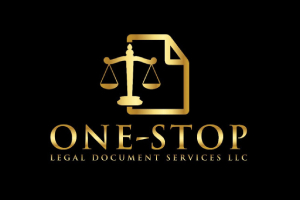Understanding Bankruptcy: A Detailed Explanation of the Process and Relevant Authorities
Bankruptcy is a legal process that is designed to help individuals and businesses who are struggling with debt. It provides a way to restructure or eliminate debt while protecting assets and income from creditors. In this article, we will provide a detailed explanation of the bankruptcy process and the relevant authorities that oversee and enforce bankruptcy laws.
Overview of the Bankruptcy Process
Bankruptcy is a court-supervised process that allows individuals and businesses to address their debt problems. The process can be initiated voluntarily or involuntarily, depending on the circumstances. Here are the key steps involved in filing for bankruptcy:
1. Filing a bankruptcy petition: In order to file for bankruptcy, a debtor must complete and file a bankruptcy petition with the appropriate bankruptcy court. The petition provides information about the debtor’s financial situation, including assets, liabilities, income, and expenses.
2. Automatic stay: Once a bankruptcy petition is filed, an automatic stay goes into effect. This means that creditors are prohibited from taking any action to collect debts from the debtor, including initiating or continuing lawsuits, wage garnishment, or foreclosure proceedings.
3. Appointment of a trustee: In a Chapter 7 bankruptcy case, a trustee is appointed to liquidate any non-exempt assets and distribute the proceeds to creditors. In a Chapter 13 bankruptcy case, a trustee is appointed to review the debtor’s proposed repayment plan and oversee payments to creditors.
4. Meeting of creditors: A meeting of creditors is held shortly after the bankruptcy petition is filed. The debtor must attend the meeting and answer questions under oath about their financial situation.
5. Discharge of debts: After the trustee has completed the liquidation process or the debtor has completed the repayment plan, any remaining eligible debts are discharged or eliminated. This means that the debtor is no longer responsible for paying these debts.
Relevant Authorities in Bankruptcy
Bankruptcy is governed by federal law and is overseen by several authorities that ensure the integrity of the process and protect the rights of debtors and creditors. Here are the key authorities involved in bankruptcy:
1. United States Bankruptcy Courts: Bankruptcy cases are handled by the United States Bankruptcy Courts, which are federal courts. These courts have jurisdiction over bankruptcy cases and are responsible for resolving disputes and making decisions about the bankruptcy process.
2. Office of the United States Trustee: The Office of the United States Trustee is a division of the Department of Justice, and is responsible for overseeing the administration of bankruptcy cases. They appoint bankruptcy trustees, review bankruptcy filings, and ensure the integrity of the bankruptcy process.
3. Bankruptcy Judges: Bankruptcy judges preside over bankruptcy cases and make decisions about matters such as discharging debts, approving repayment plans, and approving the sale of assets.
4. Bankruptcy Trustees: Bankruptcy trustees are appointed by the Office of the United States Trustee to oversee bankruptcy cases. They are responsible for liquidating assets, evaluating repayment plans, and distributing assets to creditors.
5. Bankruptcy Code: The Bankruptcy Code is a federal law that provides the framework for the bankruptcy process. It defines the different types of bankruptcy, the eligibility requirements, and the process for addressing debts through bankruptcy.
Conclusion
Bankruptcy is a complex legal process that involves many different authorities and stakeholders. The United States Bankruptcy Court, the Office of the United States Trustee, bankruptcy judges, bankruptcy trustees, and the Bankruptcy Code all play key roles in overseeing and enforcing bankruptcy laws. If you are considering filing for bankruptcy, it is important to consult with an experienced bankruptcy attorney to guide you through the process and ensure that your rights are protected.


